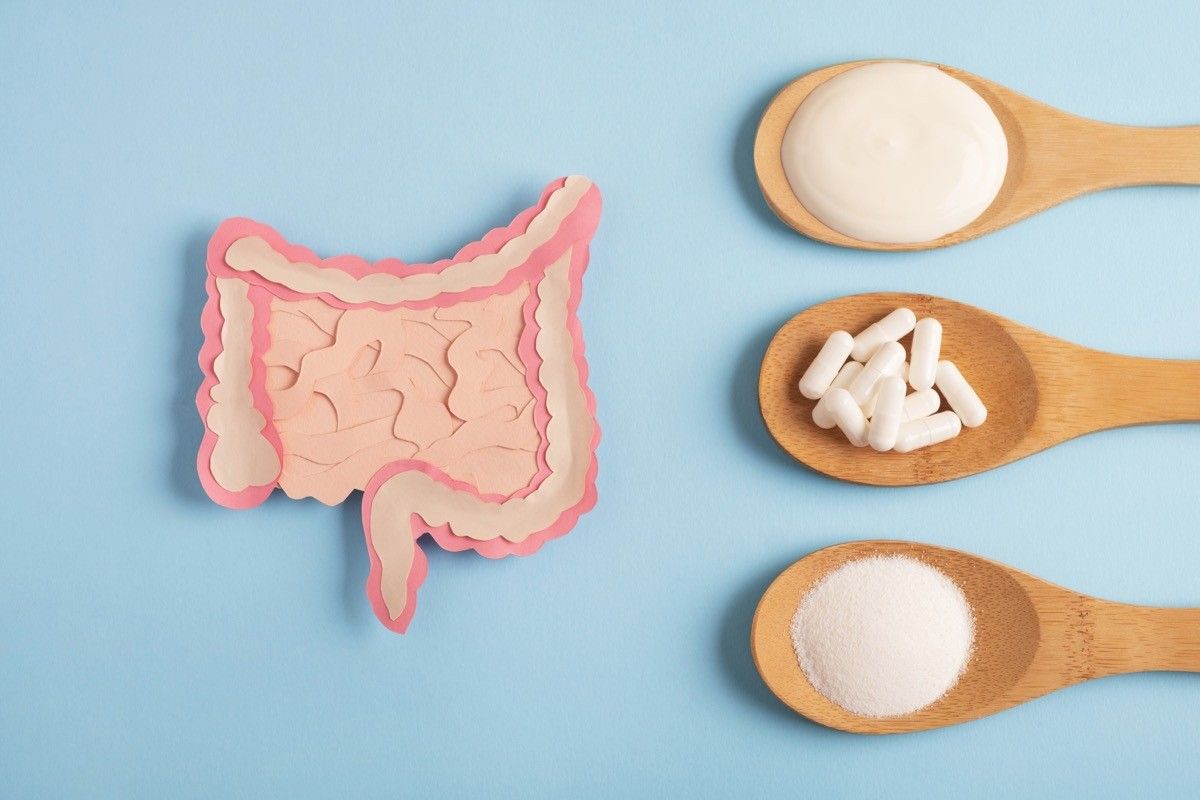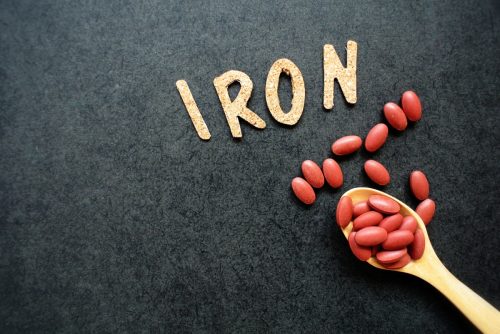Four Supplements to Boost Your Mood
When you’re in a bad mood, it can seem like nothing will get you out of your funk. Family and friends may tell you to cheer up (has saying that ever worked?), but no matter what you try, nothing seems to help. If this sounds familiar, you’re not alone. According to the National Institutes of Health (NIH), nearly one in 10 US adults has suffered from a mood disorder in the past year. There’s reason for hope, however: Boosting your mood might be as simple as popping a pill (with the go-ahead of your healthcare provider, of course).
“Some people get great benefits from taking supplements to boost their mood, especially if they’re low in vitamins or minerals,” Laura Purdy, MD, MBA, a board-certified family physician in Fort Benning, Georgia, tells Best Life. Read on to learn about four science-backed supplements that can help brighten your day and get you feeling like yourself again.
READ THIS NEXT: 7 Supplements That Actually Help You Wake Up in the Morning.

Vitamin D is called the “sunshine vitamin” for a reason. According to a 2020 meta-review of several studies, people with low vitamin D levels are at a greater risk of depression. How much vitamin D your skin produces depends on a few factors, such as where you live, your lifestyle, the season, and skin pigmentation. Your brain is also full of vitamin D receptors, indicating that this nutrient plays a vital role in cognitive function and mental health.
“Low vitamin D levels are very common in people in the winter months, especially in parts of the world that don’t get a lot of sunshine, and in women after pregnancy and breastfeeding,” Purdy explains. “Replenishing vitamin D is great not only for mood, but for skin and hair, sleep, and many other bodily functions.”
How much vitamin D should you take to keep bad moods at bay? According to the NIH, a daily dose of 800 international units (IU) is sufficient. However, supplementing with 1,000 to 2,000 IU may be a good idea for people who don’t get much sun exposure. Speak with your healthcare provider before taking a vitamin D supplement.

Growing evidence shows a strong correlation between mental health and your gastrointestinal tract, in what’s known as the “gut-brain connection.” Probiotics—the “good” gut bacteria—are beneficial in preventing and treating various mental health issues, including mood disorders. For example, the probiotic Bifidobacterium infantis can help reduce symptoms of depression and chronic fatigue syndrome.
“Probiotics are very safe, and they’re actually recommended to be taken after antibiotics or viral intestinal illnesses,” says Purdy. “Taking probiotics has no downsides, and no people I know are recommended to avoid probiotics.”

Iron deficiency can cause you to experience low energy, chronic fatigue, and mood changes. If these symptoms sound familiar, you may be one of the 25 percent of people globally who are iron deficient. Mood disorders such as depression and anxiety are one of the most common signs of iron deficiency. According to the NIH, iron is critical for growth and development, hormone production, and stable energy levels. The recommended daily allowance (RDA) of iron is 18 milligrams for women aged 19 to 50 and eight milligrams for women over 50 and men.
“Taking iron can be mood-boosting [for people with] anemia,” says Purdy. “People with iron deficiency will feel sluggish, deprived of energy, have a flat mood, and sometimes even wonder if they have depression. A simple blood test can show us that they have anemia, and by supplementing with iron, we can resolve all of these symptoms.”
Talk to your doctor before taking an iron supplement, as too much iron can lead to potentially life-threatening conditions such as liver disease, heart problems, and diabetes.
For more health news sent directly to your inbox, sign up for our daily newsletter.

St. John’s wort is a natural antidepressant that’s been used in traditional European medicine for thousands of years. Today, this powerful plant helps treat various conditions, including depression, menopausal symptoms, attention-deficit hyperactivity disorder (ADHD), obsessive-compulsive disorder (OCD), psoriasis, and anxiety.
While St. John’s wort can be great for boosting your mood, it doesn’t come without some drawbacks. “Many people think that it’s safe because it’s a natural herbal remedy, but this particular herb has many interactions with other medications,” cautions Purdy. “It’s not considered safe for people who are pregnant or breastfeeding. So while it may be helpful for people who want to boost their mood, it should only be taken with great caution.”
Consult your healthcare provider before taking St. John’s wort, or any other supplement.
" Conservative News Daily does not always share or support the views and opinions expressed here; they are just those of the writer."
